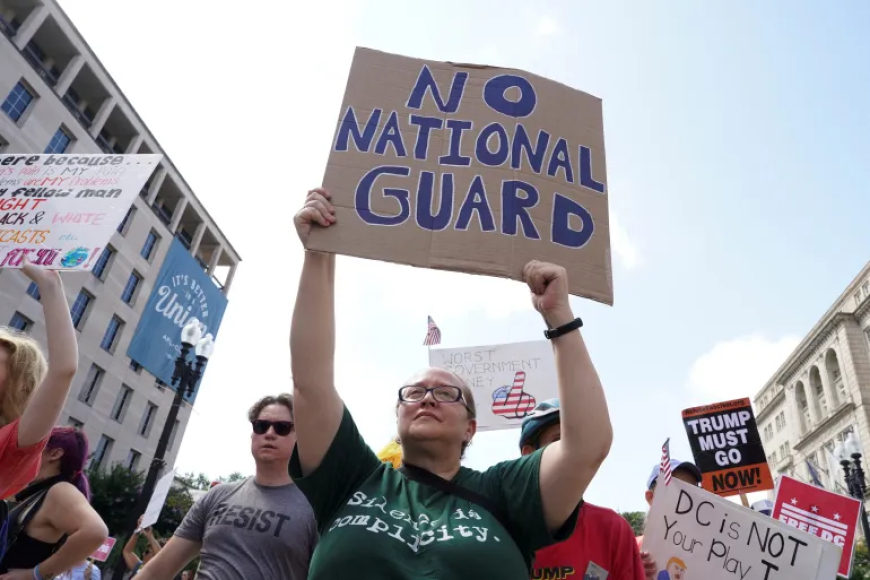Between Fear and Resistance: D.C. Residents React to Federal Police Takeover Amid Low Crime
D.C. residents voice concern over President Trump’s federalized policing amid declining crime, calling for local solutions rather than broad federal intervention.

WASHINGTON (Aug. 14, 2025) — As federal authorities ramp up security in the nation's capital, deploying National Guard troops and federal agents across Washington, D.C., residents are grappling with conflicting emotions. While some express relief amid isolated incidents of violence, others fear the city’s identity—and their civil liberties—are being sacrificed in the name of safety.
Mixed Reactions on the Ground
A recent report by The Guardian shows a city sharply divided over President Trump’s decision to federalize the Metropolitan Police Department while citing alarming crime levels. In reality, D.C. officials note that violent crime is down 26% this year, and homicides have dropped 12%—marking a multi-decade low. Despite the numbers, longtime residents like Lamont Mitchell understand the fear—and support stronger enforcement. Meanwhile, neighborhood commissioners Brian Strege and Edward Daniels warn that the plan may create confusion and harm community trust in law enforcement.(turn0news30)A persistent refrain in these neighborhoods: crime may not be out of control—but perception and politics are driving policy.
In another telling snapshot, NPR collected diverse commentary from residents across D.C. Some called for deeper investment in youth outreach, affordable housing, and community-focused policing. A few accepted the federal presence as a temporary stabilizer—yet many remained firmly opposed, viewing the federal rollout as a heavy-handed overstep. “This is not the solution,” one resident concluded, “this is about local decisions, not militarized control.”(turn0search10)
The Federal Strategy Versus Local Reality
Under Section 740 of the Home Rule Act, the President activated a federal response citing a public safety emergency. The initiative involves 800 National Guard troops alongside agents from agencies such as the FBI, DEA, and U.S. Park Police. The White House described a “24/7 patrol” strategy covering high-traffic tourist areas and known crime zones.(turn0news22, turn0search45)
But this federal surge comes amid the factual backdrop of falling crime statistics. Reports confirm that homicides and violent incidents are trending downward—raising concern among D.C. advocates and leaders who argue that enhanced safety should come through community engagement—not by sidelining local leadership.(turn0news30, turn0search10)
Why This Matters
| Key Issue | What’s at Stake |
|---|---|
| Trust in Law Enforcement | Federal intrusion risks undermining long-developed community relationships with police. |
| Home Rule and Governance | The takeover spotlights D.C.'s unique status and its vulnerability to federal pressure. |
| Public Safety vs. Civil Liberties | Residents question whether security is the motive—or if the move reflects political theater. |
Conclusion
In Washington, D.C., the ongoing federal intervention into policing has brought rights, representation, and public safety into sharper focus. While federal officials cite tragedy and crime spikes as justification, residents largely say: "We’re not living in crisis. We need support, not suppression."








